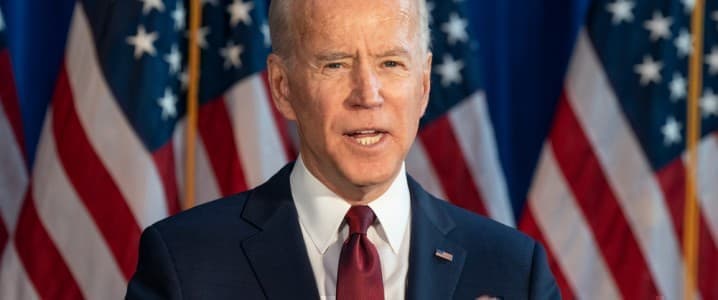During the campaign for the Democratic nomination for president, Joe Biden said he would make the Saudis “pay the price” for their killing of Washington Post contributor Jamal Khashoggi.
He elaborated: “I would make it very clear we were not going to in fact sell more weapons to them. We were going to in fact make them pay the price, and make them in fact the pariah that they are.”
Hard Lessons
President Biden has had to learn some very hard lessons when it comes to the global oil industry. One of those lessons is that major oil-exporting countries — like Russia and Saudi Arabia — hold tremendous power because of the world’s continued dependence on oil.
That dependence complicated the Biden Administration’s efforts to punish Russia for its invasion of Ukraine by ceasing imports of Russian oil and oil products. As I warned back in February in the article Russia Is A Major Supplier Of Oil To The U.S., such a move — even though many people felt like it was the right thing to do — would likely drive oil prices above $100 a barrel. We now know of course that this is what happened.
The disruption to U.S. refineries from the sudden cessation of Russian imports was a major driver in the spike in fuel prices this year. Further, there are plenty of countries out there that will still buy Russia’s oil, so it doesn’t necessarily hurt Russia. They may be selling a bit less oil, but at much higher prices than before.
Saudi Realism
The mostly state-owned oil company Saudi Aramco is the single-largest oil producer in the world. That gives Saudi Arabia enormous pricing power in the global oil and gas markets. When Saudi Arabia decides to make a change in its oil production, it can substantially move the markets. When OPEC and Russia are in agreement, their collective moves can crash oil prices (e.g., 2014-2015), or quickly drive them to triple digits.
Therein lies the problem with idealistic energy policies. You can only make a country like Saudi Arabia (or Russia) a pariah if two conditions hold true. First, they must be heavily reliant on their oil revenues to fund the government. That condition is true.
But the second is that the world must be capable of getting along just fine without the oil imports from such countries. That part isn’t true. Idealistic energy policies enable President Biden to call Saudi Arabia a pariah, but in the real world, skyrocketing energy prices have forced him to adopt a more pragmatic position.
The real heart of the issue is this. President Biden probably feels the same way about Saudi Arabia that he did when he made those remarks. But consumers are extremely sensitive about fuel prices. Saudi Arabia is in a position to impact those.
The U.S. is just not at a point in the energy transition where we can afford to thumb our noses at the world’s oil markets without facing serious consequences. Those consequences can be high oil prices — and even shortages. That’s a prescription for losing elections, and hence the ability to continue influencing the direction of U.S. energy policy.
In the long run, the solution to this dilemma is for the world to eliminate its reliance on oil imports. Only then will Saudi Arabia’s economic influence on the world be diminished.
By Robert Rapier
More Top Reads From Oilprice.com
- The Commodities To Benefit From China’s Stimulus Plan
- What Is Shell Doing On TikTok?
- Tanker Companies Race To Ship Russian Oil Ahead Of New Sanctions


















